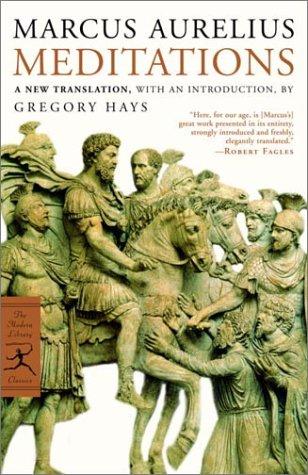Nibsy reviewed Meditations by Marc Aurèle
A book that transcends time
5 stars
It's difficult to review a book that has been read by many thousands or millions of people over the past two thousand years or so, including world leaders, philosophers and other academics, athletes, and everyday people who just want to live their best lives possible. Meditations by Marcus Aurelius, Emperor of Rome (161-180), was never intended to be read by anyone other than its author. It is a collection of Aurelius' thoughts as they occurred to him, presumably over the course of his life. This book has no plot, no story arc, and no relatable characters, per se. Instead, it's a record of his daily journal that has been translated, interpreted, and transcribed repeatedly down through the ages. The individual entries have been compiled into 12 books, which are loosely arranged in chronological order; although there is some debate about that.
This book is remarkable for two important reasons. It provides a glimpse into the thoughts of a Roman emperor, and it defines his personal life philosophy. Aurelius was a student of Stoic philosophy, which he carried with him throughout his life. Meditations represents his version of Stoic philosophy as he applied it to his own life. It's this philosophy that informed his approach not just as a ruler, but also as a human being. The philosophical virtues that were important to Aurelius and other ancient Stoic philosophers transcend time and are just as applicable today as they were back then.
This is not a book to be read once and returned to the shelf to collect dust. It's meant to be read slowly and repeatedly; it's meant to be studied. I found myself often reflecting on individual passages while I searched for ways these ideas were relevant to me and my own circumstances. I've only read this book once, but it's clear to me that new revelations are likely to emerge with each subsequent reading. Very few books can maintain their relevance beyond a few decades, let alone centuries or millennia. But this one does. This is one book to which I will return often as I polish my own personal philosophy, as so many have done before me.

